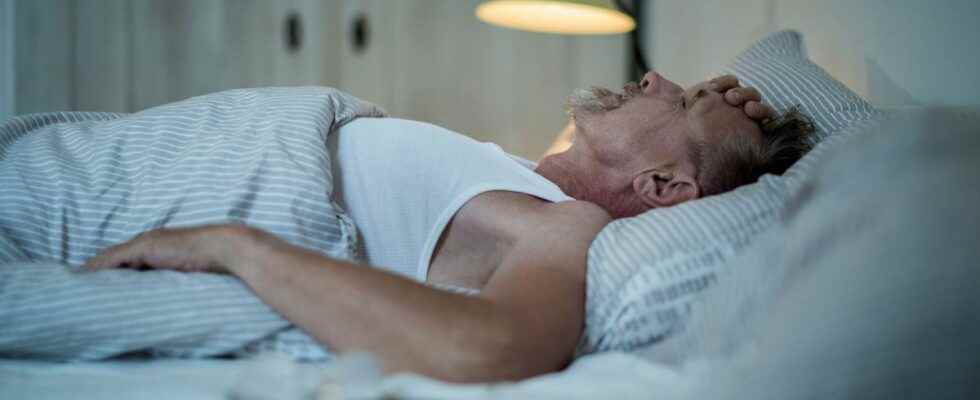Published ,
Reading 2 mins.
A new study may explain why the older you get the harder it is to get a good night’s sleep.
“About 40% of people over 75 complain about their sleep and excessive daytime sleepiness can affect up to 30% of people over 65”reports theNational Sleep Institute. Why do we have more and more trouble sleeping as we get older? It is a mystery that remains to be elucidated.
The sleep-wake circuit in decline
A new study published in the medical journal ScienceMagazinerelayed by France 24, attempts to advance the data on the subject and could shed some light on the issue of how difficult it is to get a good night’s restful sleep without constantly waking up. The answer, they say, may lie in the brain circuitry responsible for wakefulness and sleep.
The team was led by PR Luis De Lecea. In 1998, the latter discovered in mice the interaction of this famous brain circuit called the hypothalamic hypocretinergic system. It regulates wakefulness and sleep by signaling through the secretion of hypocretins to neurotransmitters.
Other studies were then able to demonstrate the role of an anomaly in the secretion of hypocretin in narcolepsy in dogs and mice.
A decrease in hypocretin secretion
The researchers therefore this time observed the phenomenon in more detail on three young mice aged 3 to 5 months by stimulating the area of the brain in question in order to calculate the level of hypocretin secretion. They then did the same manipulation on older mice (18 to 22 months). Results: Researchers report 38% less secretion in older mice compared to younger mice.
Important detail: the researchers also report that the secretion of hypocretins was much more sensitive to triggering in older mice, which could explain why we tend to wake up more often as we age or have less sleep. heavy.
Consult a therapist online
A lead for better treatments?
The identification of this problem, if the results are confirmed later with other studies on more subjects and on humans, could allow the development of more specific and more effective treatments than sleeping pills which do not always work. . According to Professor Deleca, “the antiepileptic retigabine may prove to be more effective in the context of this disorder”.
